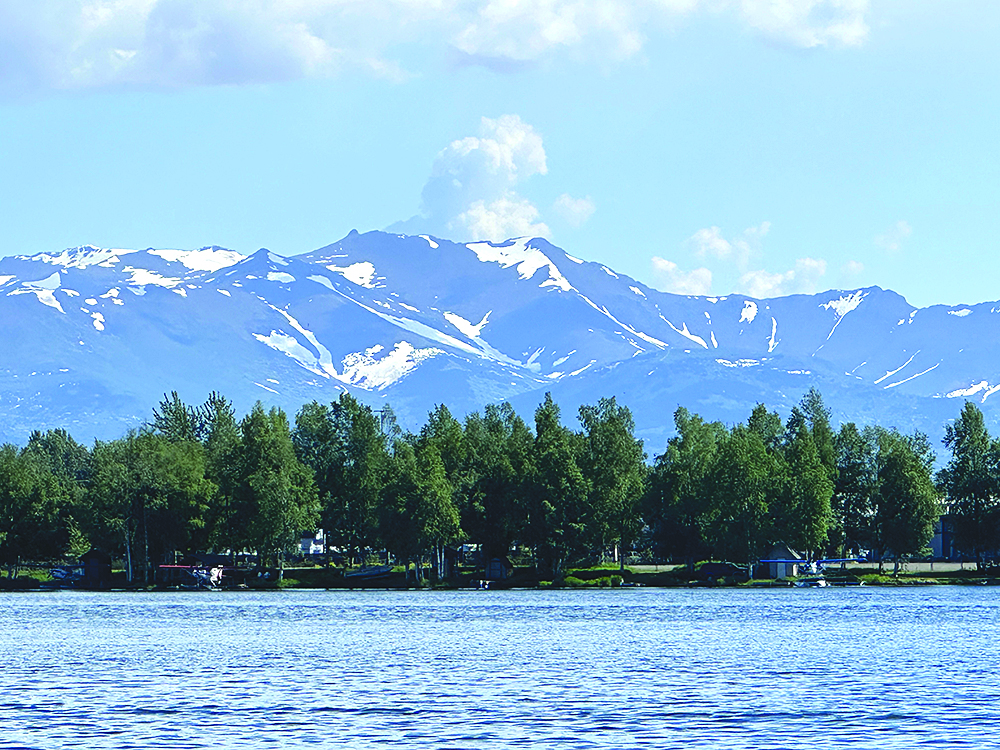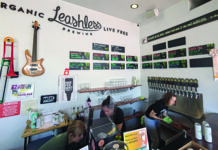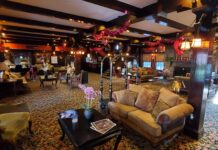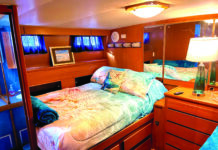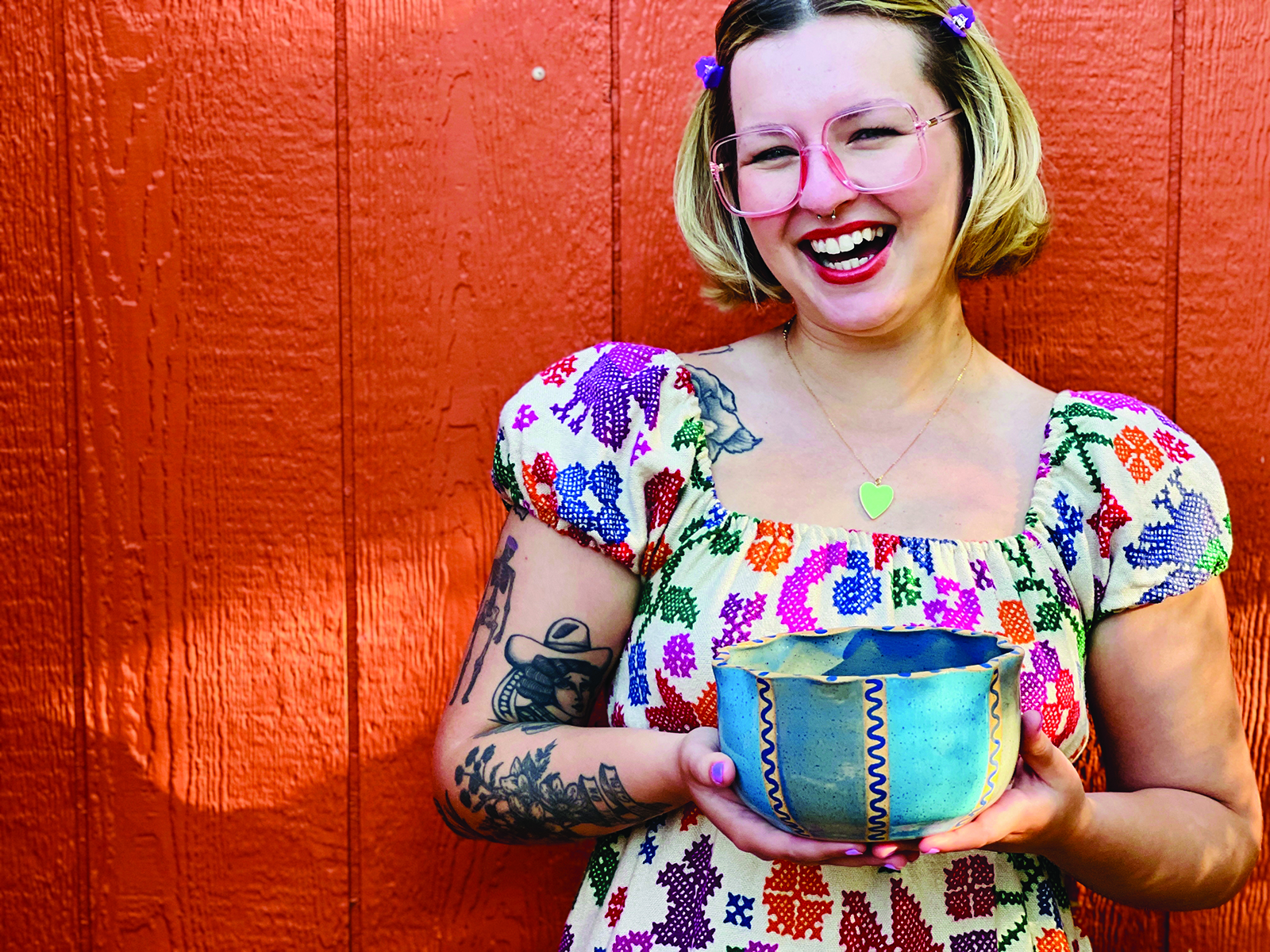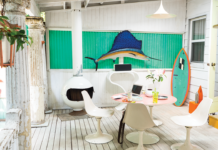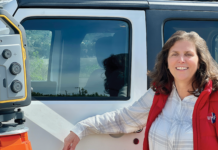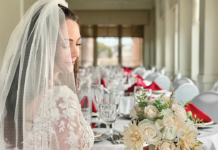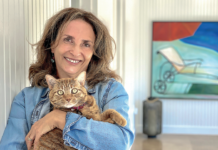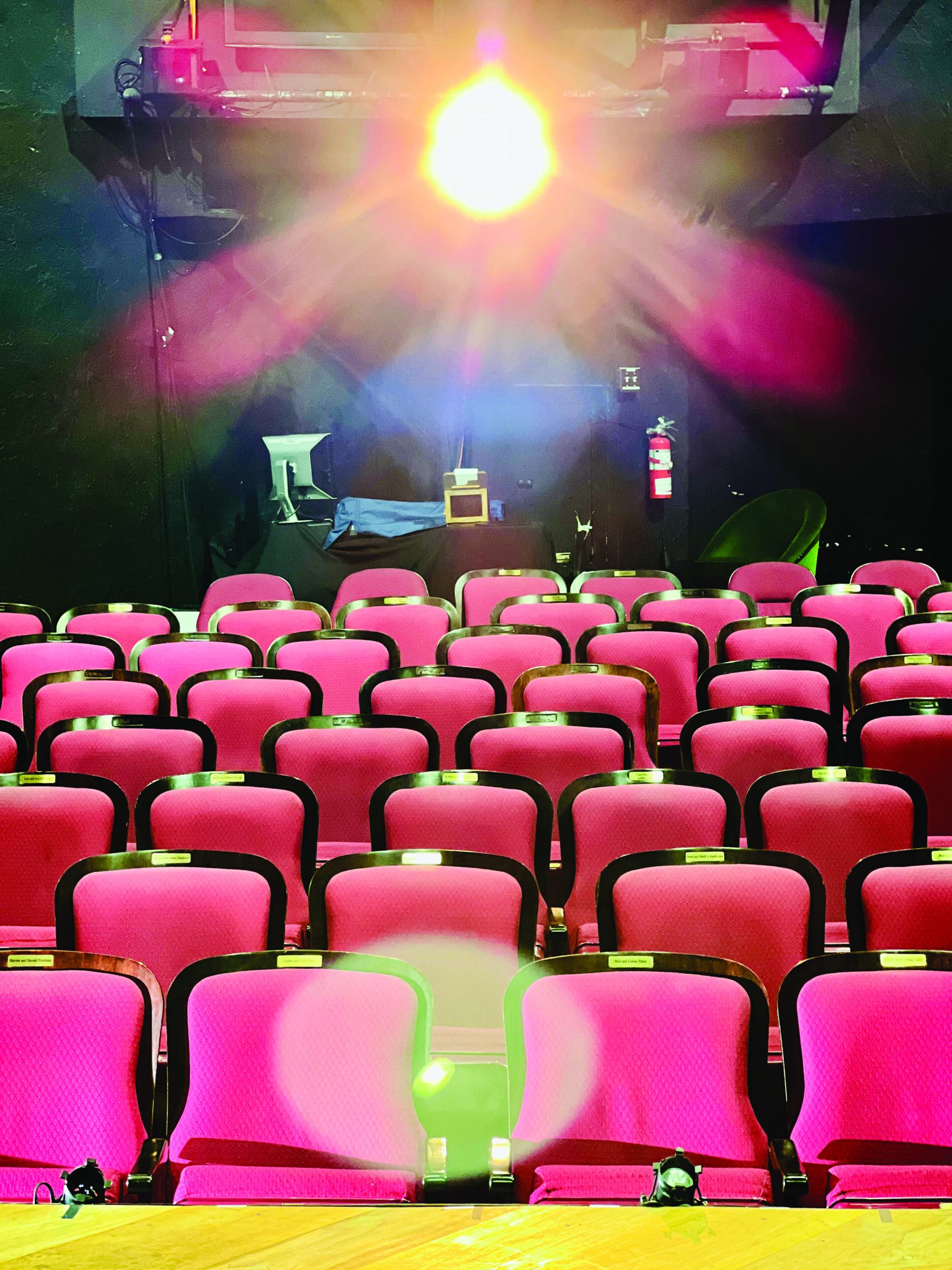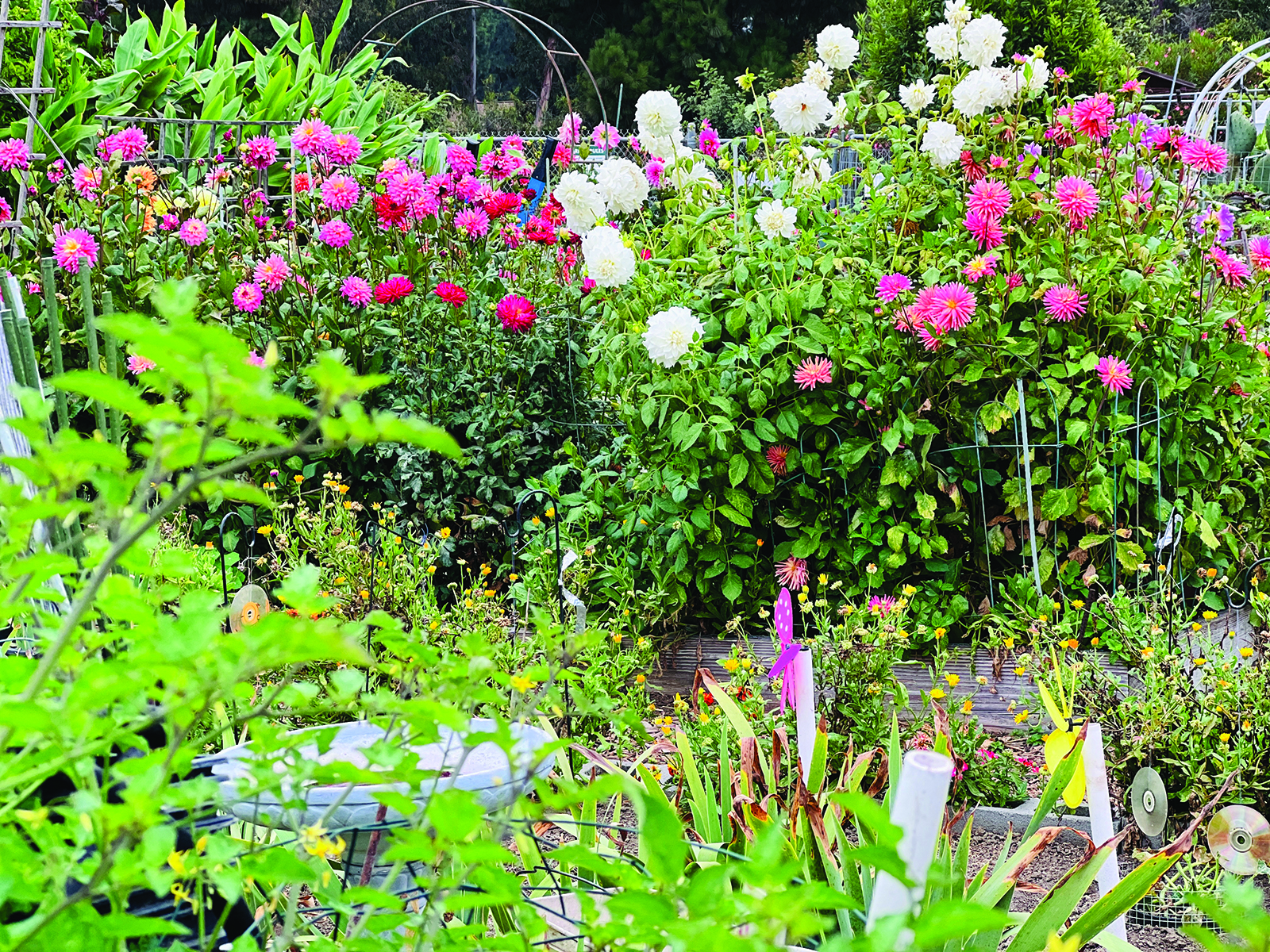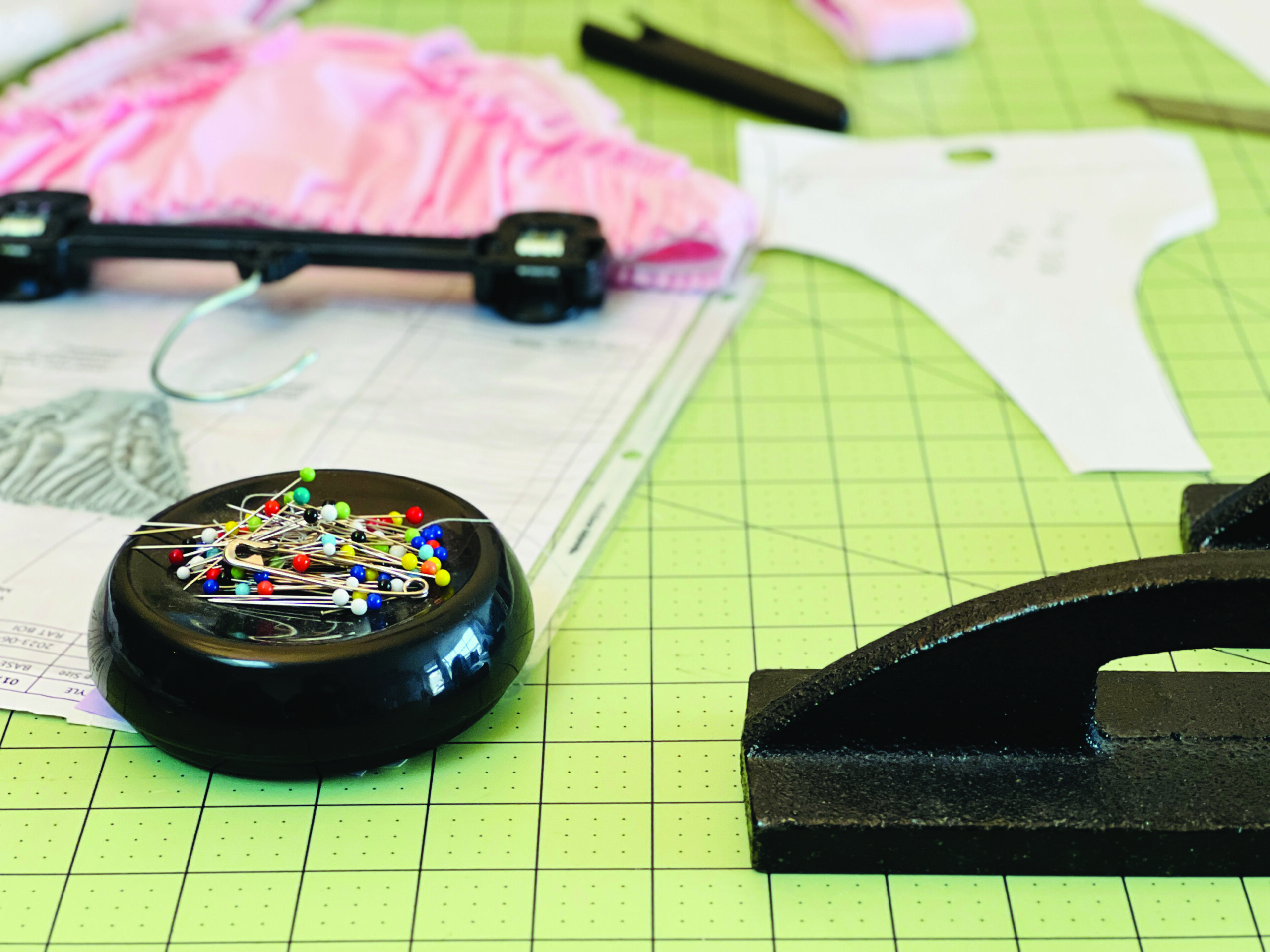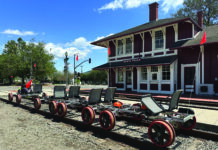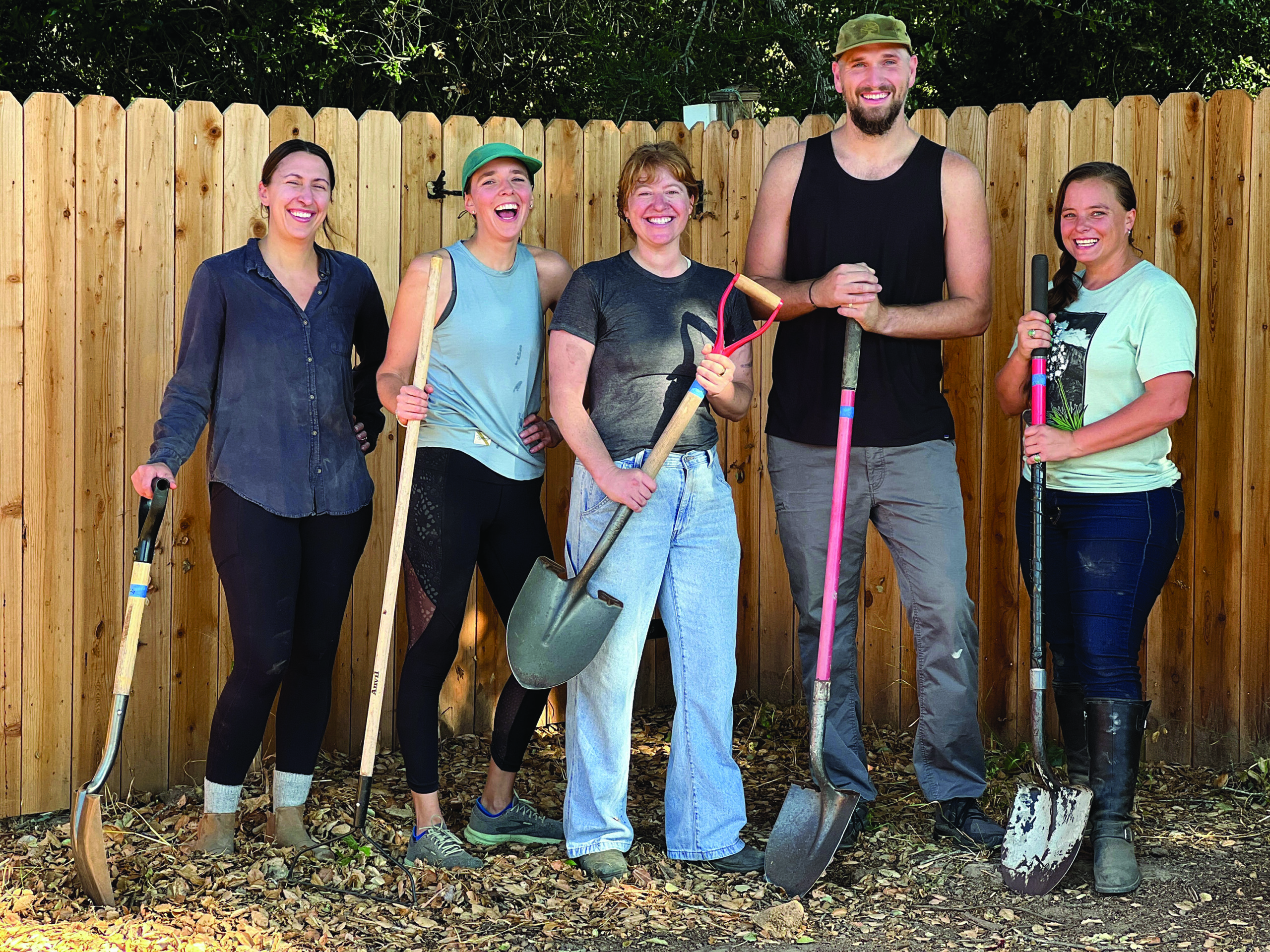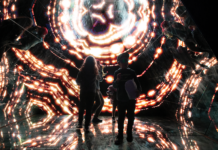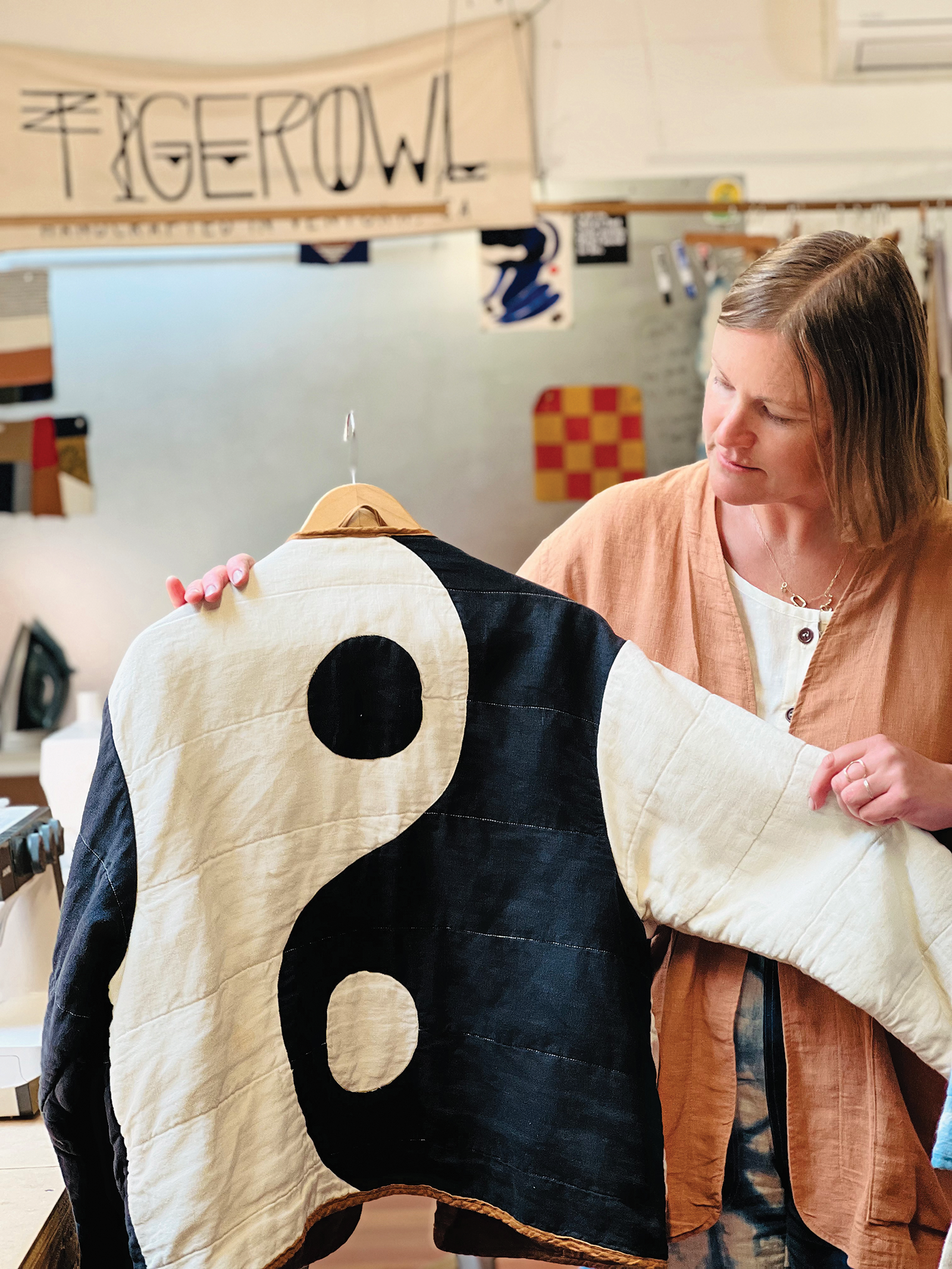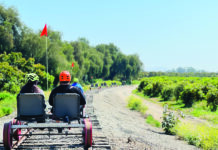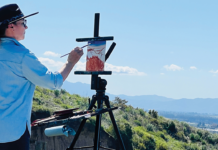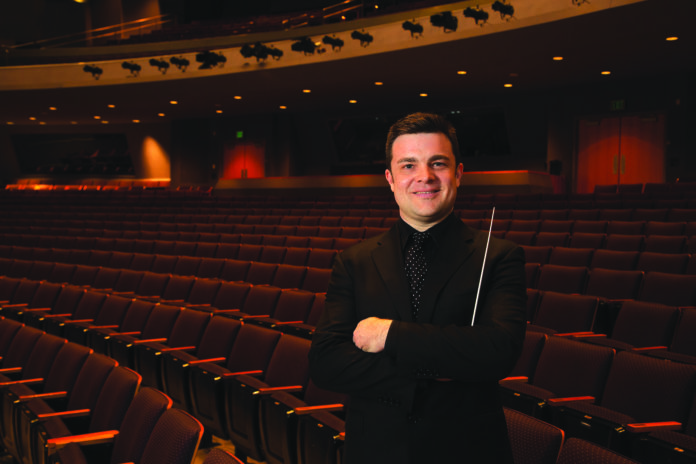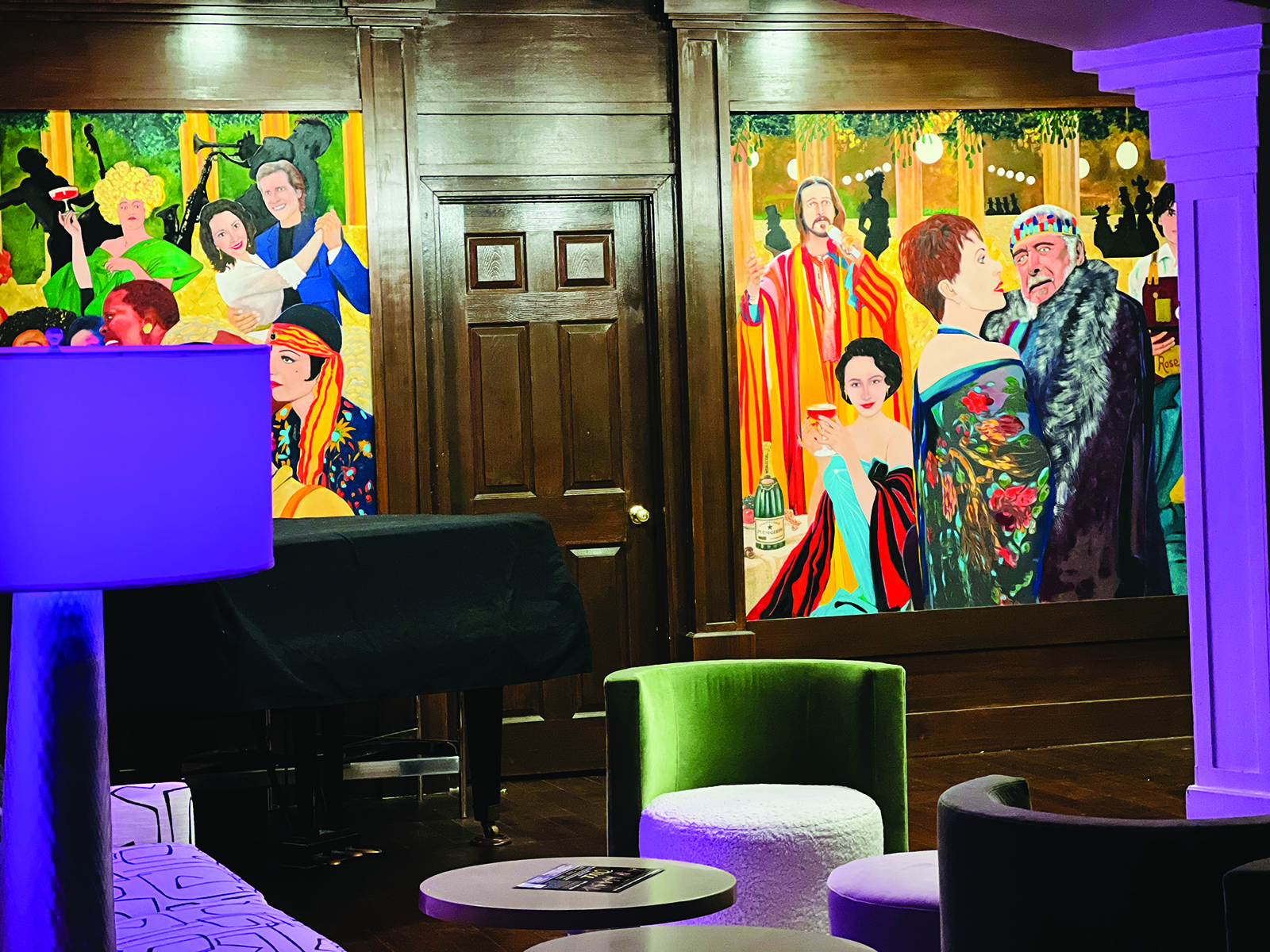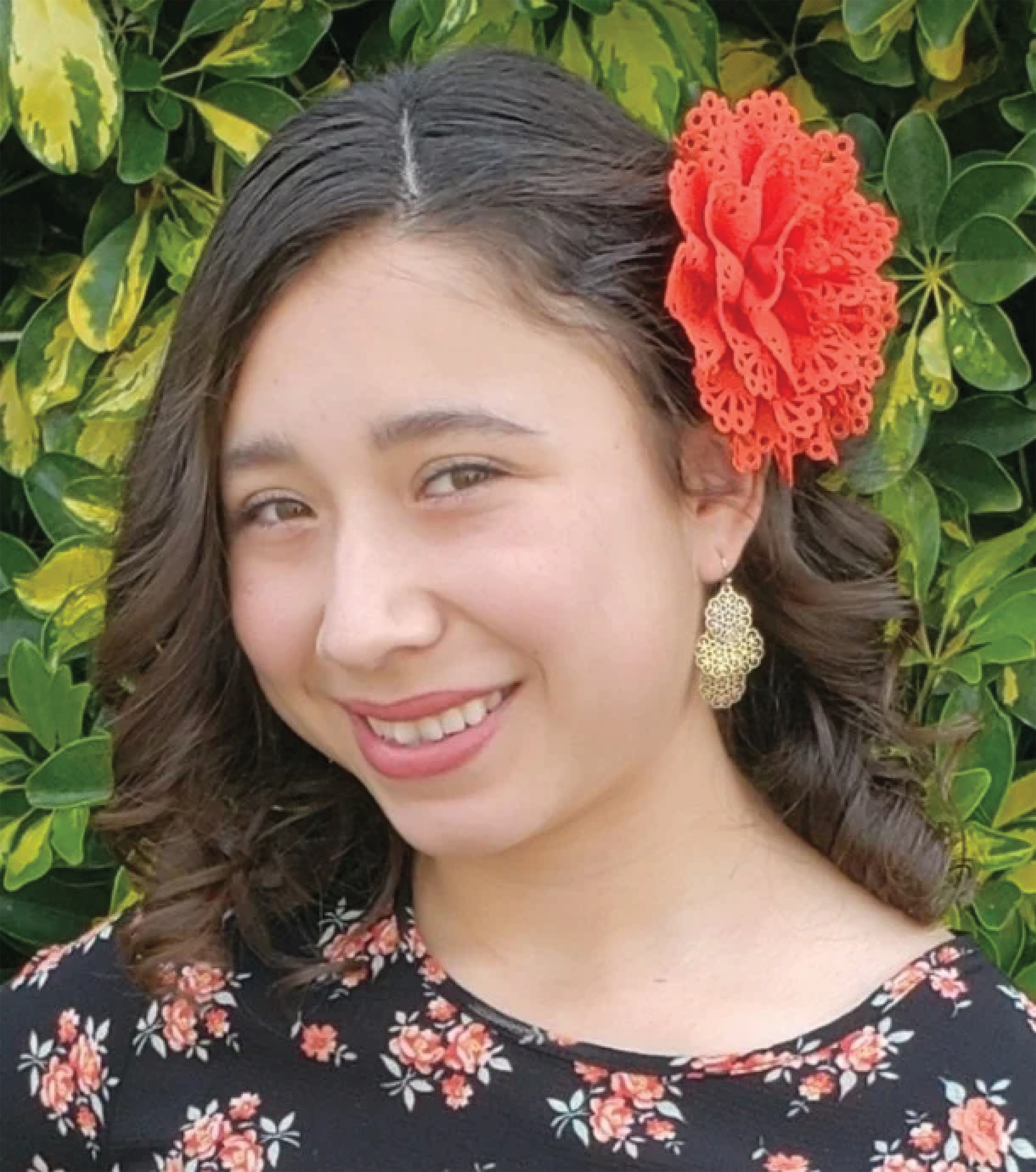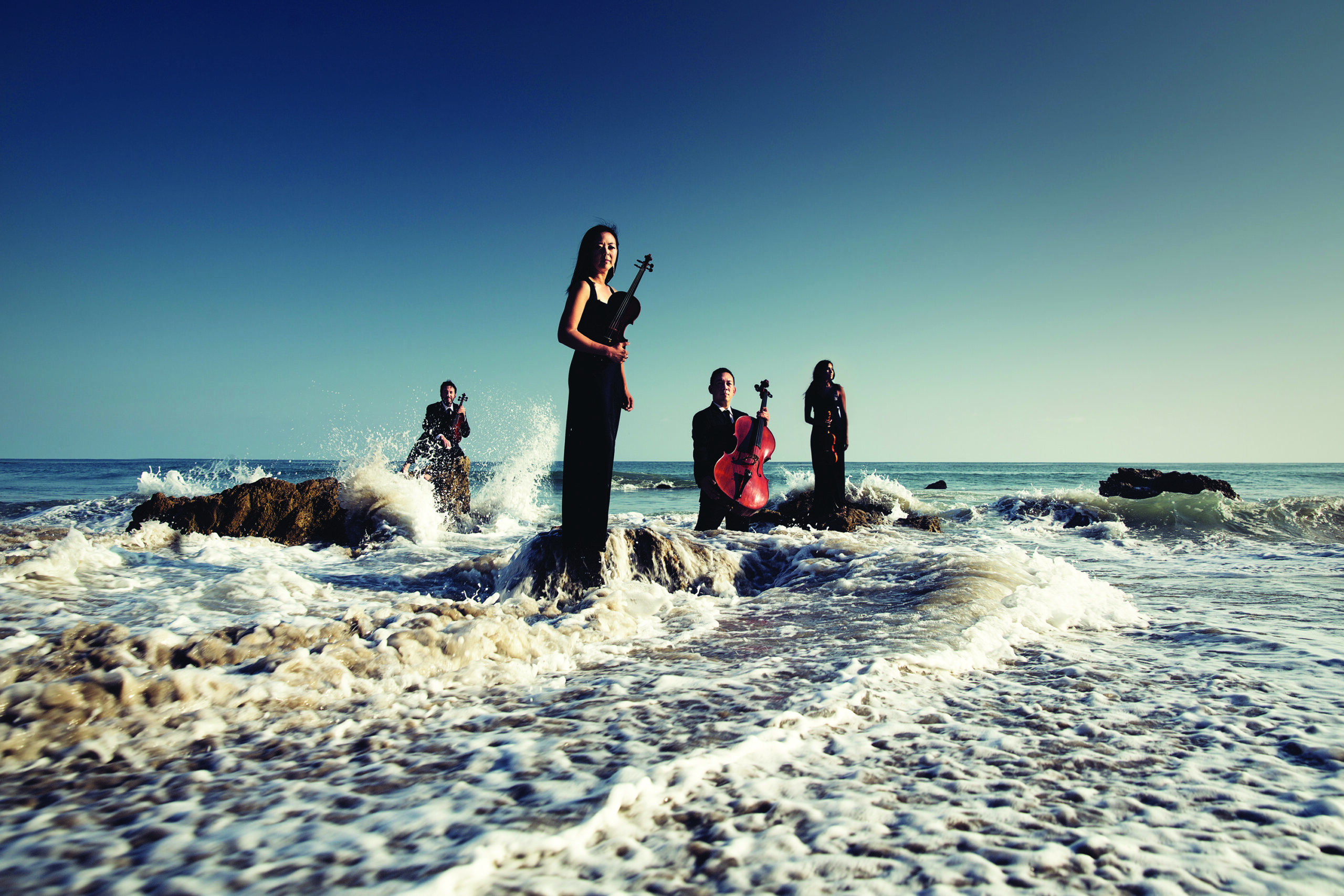by Nancy D. Lackey Shaffer
When Michael Christie joined New West Symphony as music director in 2019, he brought with him a Grammy Award, a career that spanned the globe from Minnesota to Australia, and more than two decades of experience conducting for opera and symphonies. A little more than a year after taking the helm, he found his live performances canceled by the pandemic. Nevertheless, Christie has rallied, engaging fans online through Zoom concerts with musicians performing from home, the friendly competition of “Battle of the Sections” and the online music and education events of the “Pleasure of Your Company” series (developed in conjunction with the New West Symphony League). His curated “Michael Christie’s Jukebox” playlist (available on both the symphony website and YouTube) shows the depth and breadth of the conductor’s musical inspiration, with everything from Bach, Beethoven and Brahms to The Beatles, Lin-Manuel Miranda and Dolly Parton.
Amidst program development and planning for the 2020/21 season, Maestro Christie found time to talk to Ventana Monthly about emotionally connecting through music, the balancing act of working from home, classical music’s technological awakening and more.
Tell us a little about your life previous to New West Symphony.
I was born in Buffalo, New York to a music- and arts-appreciating family, but not to performing artists. The first instrument that I became proficient on is the trumpet. (My biggest life regret is not to have taken piano studies more seriously!) My parents were diligent about making sure my siblings and I had exposure to a wide range of artistic and sporting experiences. I attended Oberlin College Conservatory of Music in Ohio as a trumpet player and left a conductor! After winning a prize for “Outstanding Potential” at the First International Sibelius Conductor’s Competition in Helsinki, Finland in 1995, I went on to become the principal conductor/chief conductor/music director of many ensembles before arriving at the New West Symphony. These included the Queensland Orchestra in Brisbane, Australia, the Colorado Music Festival in Boulder, the Brooklyn Philharmonic, Phoenix Symphony and Minnesota Opera.
What originally drew you to New West Symphony?
I appreciated that they were looking for a curatorial presentation style along with significant conducting experience. When we discussed developing an audience with an open and welcoming disposition, I knew this was going to be a perfect opportunity to develop fun relationships with the community and bring the enjoyable experience that I have with many ensembles and artists to the table.
Your career absolutely spans the globe, with appointments in Phoenix, Brooklyn, Minnesota, even Australia. Did you see a distinct musical personality in each of these areas?
My greatest realization over all of the years of travel and performing is that patrons attend whatever style of music they like because it connects with them emotionally, spiritually or even physically. This is what connects us as human beings no matter where on the globe we live and regardless of our backgrounds. I am grateful to have experienced the different approaches both performers and patrons bring to concerts. These traditions/approaches are where we diverge as humans to a certain extent, but at the same time there isn’t an Australian way to appreciate a performance that differs from a Southern California way. Ultimately, experiencing music means a great deal to people.
You won a Grammy in 2019 for Best Opera Recording for The (R)evolution of Steve Jobs with the Santa Fe Opera. What’s it like to win a Grammy?
Winning a Grammy is euphoric. I feel very honored to be among incredible artists that were just as deserving, and of course it was a thrill to come out on top. I was in Macy’s Department store in Chicago buying brown socks when the awards were announced! It was a very cold February day and I vividly remember standing outside taking dozens of calls after we won. It was amazing. One of the remarkable things about being part of the creative team and bringing a new work to life is working closely with its composer and librettist and, to a certain extent, creating the traditions that will influence future performances. A little slower here, faster there; amp up the emotion at this critical moment are discussions you can’t have with Beethoven or Aretha Franklin now. To have that connection with the creators is remarkable, but also very humbling.
Your first concert with New West Symphony was “Rhapsody in Blue” in October 2018, when you were still in the running for music director. Why did you select this particular piece?
One of my guiding principles when working with an artist like pianist Kevin Cole is to establish and understand their artistic strengths and priorities. Kevin has made it his business to know exactly how Gershwin interpreted his own music and the DNA of Gershwin’s musical language. I knew Kevin would bring that authenticity to his performances and would beautifully blur the line between jazz and symphonic concert music. He was fabulous.
What are some of the things you’d like to do differently with New West Symphony?
Most important has been to make the New West performance experience more personal, engaging and welcoming. The addition of Intermission Insights and Entr’Acte have made our performances unique in our industry. Usually intermission is this blank space in a concert program and I wanted to offer patrons the opportunity to learn more and experience more if they wished. Having a nice glass of wine and chatting with friends is just as important to some folks, so I leave it up to the patron to decide how they’re feeling that evening. But I can say with hand on heart that if you attend a NWS performance you’ll have the opportunity to interact with the performers at intermission and hear something you’ve never heard before — AT EVERY PERFORMANCE. Mix that with great classical music and the concert becomes an experience, and not simply just another event.
I also know that the depth of connections between musical styles is very profound, so creating more thematic programs is a good pathway for people to experience things they know and love alongside related new experiences.
The pandemic has obviously had a huge impact on live music and orchestras, including New West Symphony. What canceled concert was most disappointing for you?
The postponement of both our Violins of Hope and Season Finale programs were deeply disappointing. We had put a lot of effort behind the Violins of Hope initiative and people were clearly responding, as demonstrated by the unprecedented ticket sales. It was to be a very touching and in many ways defining series of events to demonstrate how New West was going to be developing more immersive thematic programming in the coming seasons. And of course, not to be able to bring violin superstar Sarah Chang to New West was very sad. There was also a work, Sibelius’ Third Symphony, on the program that was a personal calling card of sorts since this was the conclusion of my first season. It was the first symphonic work I conducted with a professional orchestra 25 years ago, the same year the New West Symphony was created!
You have not been idle during the shutdown. With your curated “Jukebox” and the “Pleasure of Your Company” series, you’ve tried to stay connected to the symphony audience. What has the response been like?
It’s been very fulfilling to connect with our patrons in many ways during Shelter-in-Place. Although health regulations have required us to produce online, we’ve been committed to creating original content in order to continue employing our musicians as much as possible. The impact on their lives has been unfathomable. I’m proud of the special online concerts we brought to the community during the early days of lockdown on Memorial Day, Mother’s Day and Father’s Day with New West Symphony musicians and friends of the orchestra.
My Jukebox Playlist (available on YouTube) has been fun because these weave together eclectic music and let me dip my toes in every imaginable genre. Our supporter-focused “Pleasure of your Company” and “Up Close and Personal” initiatives have grown substantially during this period as well. My mission has been to look at our offerings from the audience viewpoint and try to provide context and knowledge that enhances people’s love of the music.
What have been the biggest challenges?
Clearly, getting up to speed with the technology has been the biggest variable for me. Virtually nothing we have to do now was required pre-Covid, but I feel like not learning and not trying is the kiss of death. Actually, for as stressful as this year has been, the “classical music” world was long overdue for a technological awakening and now I see a world where we can produce performances in a concert hall and at the same time build global audiences connected by the Internet. Exactly how that reality is implemented is going to be part of the dramatic evolution unfolding before our eyes.
Practically speaking, the biggest challenge is who will tune in and who will support us financially because we currently have no choice but to be online. I can assure patrons that their experience and connection to the music and musicians is at the forefront of our thinking. While the venue may be different in the short term, we are working as hard as we can to provide a great experience.
Any new endeavors on the horizon for you — be they live or online?
Out of necessity, we’ve reimagined our 2020-21 season and we believe that the community will be very excited about what we’re doing. Our reimagined season called “Global Sounds, Local Cultures” will feature eight mini-festivals to be held October through June and made available streamed or on-demand. These digital concerts, along with engaging complementary content, will reflect the music, cultures and family traditions found in Ventura County. And we’re thrilled to have the Ronald Reagan Presidential Library as our venue partner for our fall productions
There are several pillars guiding this effort. These include: Employing as many musicians as we are allowed, reflecting the population of Ventura County and the Conejo Valley more than ever, providing the comfort and inspiration of human beings performing music together and emerging from this Covid nightmare with a larger base of support and participation than we started.
We have set the entry price as low as we can and are offering a great deal more than we ever could in a concert hall setting. This is the deal of the decade but also a critical moment for us. Efforts to “support local” are no laughing matter. So many people and organizations are on the edge because of this situation, and with our board, musicians and supporters we are committed to successfully achieving our goals. But we do need folks to participate and help us on this journey, financially as well as critically assessing the online experience and helping us shape offerings that broaden their horizons and entertain.
How have you been spending your time during quarantine?
My wife, Alexis, and I, with children Sinclair and Beckett, live in Minneapolis. She is working very hard as an intensive care physician and the kids are participating in varying degrees of distance learning. My days are pretty much 7:30 a.m.-3 p.m. helping with schooling and 3 p.m.-10 p.m. working for New West Symphony. So many people know this routine now and I just hope we don’t all collapse into a heap of stressed-out flesh and bone!
Still, being home for such a long time with my family has been amazing in its own right. I’ve spent the better part of three decades traveling, so now I’m more fully experiencing the balancing act of laundry, meal prep and the solemn duty of helping my children advance in their education.
I think the experiences people are having are so extreme — isolation and/or a suffocating pile up of responsibilities. I honestly don’t know what kind of emotional condition people will be in a little way down the road.
I just hope to provide some artistic expression people can connect to and treasure. What more can I ask?!
What have you missed most during this time?
Hugs. Smiles.
What are you most looking forward to doing once live performances can take place again, or we can safely meet in crowds?
I can’t wait to see what we learn from all of this and what we can do much better for our communities when it is safe to convene again.
What plans do you have for New West Symphony once things open up again?
I hope that we create an audience for our “cultural nexus” programming that will live side by side with our symphonic concert hall programming. I also want to expand into summer and holiday programming, which is very much lacking in Ventura County. In a way, none of these avenues requires us to be in a post-Covid environment but we are focused on surviving this and growing where we can.
Who are some of your favorite musicians and composers?
I love trailblazers. Music of the 1960s and 1970s holds a very special place in my heart. Many of these artists were geniuses. They had a level of inspiration and curiosity that I marvel at. Check out my Jukebox Playlists and you’ll get a good sense of my musical heroes!
Who are some of the people you would really love to work with one day?
Covid has made me really appreciate the striving artist. People who are hardwired to adjust and push forward; they will cleverly navigate our post-Covid reentry and are the ones I want to work with most.


